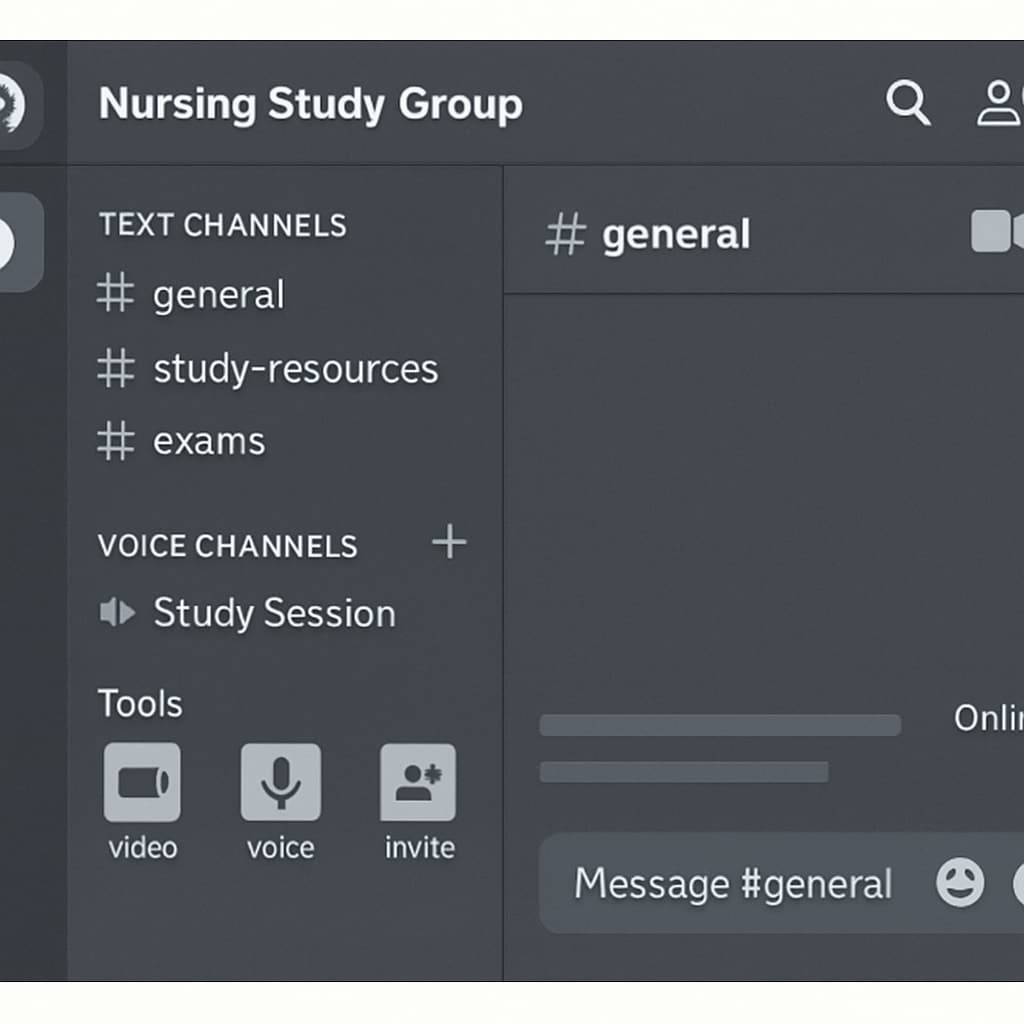In today’s digital age, nursing students face unique challenges in mastering complex subjects while balancing their clinical practice, coursework, and personal lives. One effective solution is joining study groups and engaging with Discord communities. These platforms provide a collaborative and dynamic environment where students can share resources, discuss challenging topics, and support each other in their academic journey. Learning networks like these not only improve understanding but also foster a sense of community, essential for professional growth in healthcare.
Why Nursing Students Benefit from Study Groups
Collaboration is a cornerstone of effective learning, especially in nursing education. Study groups allow students to pool their knowledge, exchange insights, and clarify doubts in a supportive environment. Furthermore, group discussions can stimulate critical thinking and enhance problem-solving skills. For example, when preparing for exams or discussing case studies, students can approach a topic from multiple perspectives, enriching their understanding.
According to Britannica, collaborative learning significantly enhances retention and comprehension. It is especially beneficial in fields like nursing, where teamwork is integral to professional practice. Study groups not only help students academically but also prepare them for the collaborative nature of healthcare environments.

How Discord Communities Revolutionize Learning
Discord, initially popular among gamers, has evolved into a versatile platform for educational purposes. Its features—such as voice channels, text chats, and file sharing—make it ideal for creating virtual study communities. Many nursing students and educators now use Discord to organize study sessions, share resources, and provide peer-to-peer support.
Discord communities offer flexibility, allowing students to connect regardless of geographical barriers. This is especially helpful for nursing students who often have irregular schedules due to clinical rotations. By joining Discord groups, students can access valuable discussions, resources, and advice anytime, anywhere.
For example, some nursing Discord servers include sections for exam preparation, clinical tips, and even mental health discussions. This multifaceted approach ensures students receive holistic support, addressing both academic and personal challenges.

Practical Strategies for Building Effective Learning Networks
Creating or joining a successful study group or Discord community requires careful planning and active engagement. Here are some practical strategies:
- Identify your goals: Whether it’s exam preparation, clinical practice improvement, or general knowledge sharing, define the purpose of your group.
- Choose the right platform: For in-person groups, libraries or cafes work well. For virtual collaboration, platforms like Discord offer versatile tools.
- Establish rules: Set clear guidelines on participation, resource sharing, and respectful communication to ensure a productive environment.
- Encourage diversity: Include members with varying levels of expertise to bring fresh perspectives and insights.
- Leverage technology: Use tools like collaborative documents (e.g., Google Docs) and online quizzes to enhance productivity.
As a result, these strategies can significantly improve the efficiency and effectiveness of learning networks, making them a valuable asset for nursing students navigating their academic journeys.
Conclusion: The Future of Collaborative Learning
The digital era has opened endless possibilities for collaborative learning, and nursing students are uniquely positioned to benefit from these advancements. Study groups and Discord communities offer practical solutions to overcome academic hurdles while building essential teamwork skills. By embracing these resources, nursing students can enhance their learning experience, prepare for professional challenges, and foster meaningful connections with peers.
As education continues to evolve, platforms like Discord and structured study groups will play an increasingly vital role in supporting students. The key lies in proactive participation and the willingness to share knowledge, making these networks not just tools for academic success but also foundations for lifelong learning.
Readability guidance: Use short paragraphs and lists to summarize key points. Add transitional phrases to improve the flow between ideas. Ensure the content is engaging and easy to understand.


